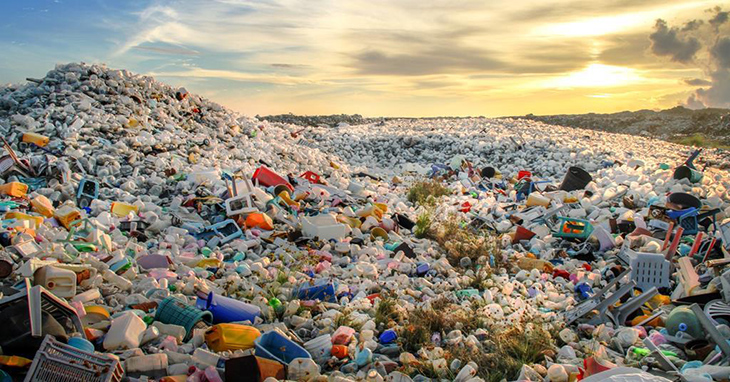
Getting rid of plastic waste is no easy feat. Millions of tons of waste products have accumulated in the last few decades alone. Experts and environmentalists have done their best to address this issue, but the problem has only gotten worse over time. They’ve been putting their heads together to find an ideal solution.
In their effort to alleviate the burgeoning issue, scientists may have come up with the idea solution. They’ve come upon an enzyme that could dissolve plastic more efficiently, possibly making the world a cleaner place to live in. If this new technology gets perfected, dumpsites will no longer be a place where toxins sit for years.
A group of scientists have helped pioneer the use of enzymes whose main task is to eat plastic that have accumulated on land and in seas. The new discovery is a crucial next step in the development of a nature-based solution that specified to target the global plastics crisis.
With hours of hard work, they were finally able to characterize an enzyme that has the amazing ability to break down terephthalate (TPA). This TPA is just one of the chemical building blocks of polyethylene terephthalate (PET) plastic. This has been used by major industries in the production of single-use drinks bottles, clothing, and carpets.
The important research was co-led by Professor Jen DuBois of Montana State University, and Professor John McGeehan from the University of Portsmouth in England.
McGeehan led the international team that was able to engineer a natural enzyme that comes with the capacity to break down PET plastic. The enzymes (PETase and MHETase) can break the PET polymer into the chemical building blocks ethylene glycol and TPA.
This new research has already been published in the peer-reviewed publication entitled Proceedings of the National Academy of Sciences. The report breaks down the next specific steps needed to make this possible and they honed in on managing TPA.
“While ethylene glycol is a chemical with many uses—it’s part of the antifreeze you put into your car, for example—TPA does not have many uses outside of PET, nor is it something that most bacteria can even digest,” explained Professor DuBois. She also added, “However, the Portsmouth team revealed that an enzyme from PET-consuming bacteria recognizes TPA like a hand in a glove.” Her team at MSU had been able to demonstrate how this enzyme, they called TPADO, breaks down just the TPA with “amazing efficiency”.
“The last few years have seen incredible advances in the engineering of enzymes to break down PET plastic into its building blocks,” spoke Professor McGeehan. He is the Director of Portsmouth University’s Centre for Enzyme Innovation.
He said, “This work goes a stage further and looks at the first enzyme in a cascade that can deconstruct those building blocks into simpler molecules. These can then be utilized by bacteria to generate sustainable chemicals and materials, essential making valuable products out of plastic waste.”
With the use of a very powerful X-ray, they were able to generate a detailed 3D structure of the TPADO enzyme. They were able to show how this enzyme performs to create this crucial reaction in the breakdown. “This provides researchers with a blueprint for engineering faster and more efficient versions of this complex enzyme,” explained McGeehan.
The world produces more than 400 million tons of plastic waste each year. This staggering number has been a point of contention for many because it poses a threat for the future of the planet. They hope that this effort they’ve made will be able to open the door to improve bacterial enzymes, one such example is TPADO. This will be able to tackle the plastic pollution problem as well as develop biological systems that are able to convert waste plastic into valuable products through natural means.
The study was undertaken as part of the BOTTLE Consortium. This was an international collaboration between the US and UK. They have made sure to bring together expert groups of researchers from across a wide range of scientific areas. Their main goal was to address plastic recycling and upcycling that the rest of the planet can employ.
What are your thoughts? Please comment below and share this news!
True Activist / Report a typo


